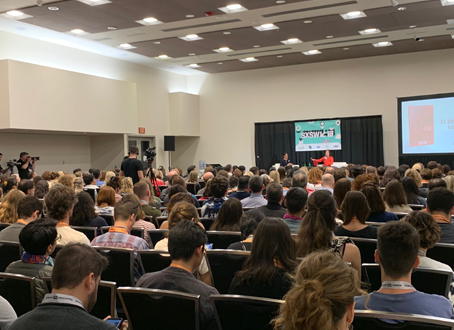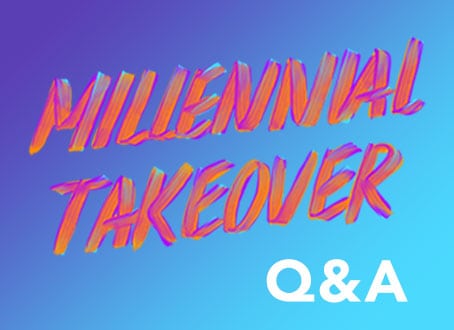As a member of Independent Sector’s American Express 2014 NGen Fellows cohort, I am honored to be one of a dozen leaders, under the age of 40, selected from across the country, to develop our capacity to lead, strengthen our professional networks and elevate our accomplishments on a national level. Designed to be a leadership development initiative, the NGen fellowship provides mentoring, leadership training and an opportunity to participate in a collaborative project to benefit the social sector.
As my fellowship drew to an end, I was delighted to join in welcoming the new 2015 class of fellows at Independent Sector’s annual member meeting a few weeks ago, where several of the new inductees asked me to share my reflections from the yearlong experience. It was the perfect time to pause and consider how the program affected me, and it was also a chance to assess what my own contributions to the program were. I came up with five key takeaways that I’m sharing in the hope that it will help to inform not only the future NGen Fellows, but also other young leaders in the nonprofit sector.
-
- It’s a Journey. At the beginning of the experience, I thought that filling out the application and being selected were going to be the hardest parts of the fellowship. I mean really, how hard can it be to accept a recognition, read some excerpts from a book and share some experiences with 11 other people? Turns out, it can be pretty difficult — especially when you end up challenging your own definition of what a leader is and how to lead. My peers in the fellowship and I quickly learned that we’d have to push ourselves and expand our understanding of what it means to lead. By the end of the 12-months, our cohort reflected on the experiences we had shared and we recognized just how far we had come.
To anyone who is looking to grow as a leader, I strongly suggest taking the time to explore how others around you lead — even those who lead in a style that is different than yours or that you may not agree with. You don’t necessarily have to adopt all the different styles, but you should keep an open mind and learn from them.
-
- It’s Worth the Work. One of the components of our fellowship was to complete a collaborative project that benefits the social sector. With everyone on the team operating “remotely” and no one designated to lead at the outset, it was difficult to figure out how best to work together. We were left to our own devices to figure this out, and that process in and of itself was a big part of our leadership experience. It wasn’t always easy, but in the end team members took turns stepping up and taking on different pieces of the project.
Our cohort chose to explore how the social sector might mitigate barriers and encourage stronger, more sustainable innovation by shining a light on how social innovation is viewed and practiced by those in our field. Through a partnership with the Forbes Fund and a survey of Independent Sector members and social sector practitioners, we identified ways to support more adoption of social innovation —not only in work and deeds, but also in the culture of workplaces that strive to better serve people and communities. The result was the creation of a new report, The Necessary Challenge: Understanding and Fostering Innovation in the Social Sector.
-
- It’s a Family. Remembering where we all began a year ago, it is astonishing to think about all of the personal and professional changes that have happened for each and every one of us — and those relationships are by far the best part of the fellowship. The network we have created has yielded new partnerships, new connections and new opportunities that have lifted up us all. Beyond even our own cohort, we are now connected to six other classes of past and present fellows, who like us are driven to create transformative change in the social sector. The personal relationships ended up being just as important as the curriculum in our leadership development.
-
- It’s a Priority. It’s inevitable… life happens, work happens — and in my case, having a baby mid-way through the fellowship happened. I realized early on that if this fellowship was going to work for me, I had to make it a priority. In this case, it ultimately meant investing time and energy into my own leadership development, which is much harder to do than it sounds. All too often, we sacrifice our own needs in service of something or someone else, especially when it comes to a need that is more fluid and does not have immediate, tangible results — like leadership development. Making the fellowship a priority in my life wasn’t always easy, but learning how to make time for my own development in the midst of “life” has been invaluable.
- It’s an Honor. My final reflection… I am proud to be an NGen Fellow and follow in the footsteps of talented young leaders who have paved the NGen path before me. I hope that as you are reading this you’ll consider applying for a future class, or that you will nominate someone who is deserving and could benefit from this incredible experience. Special thanks to American Express and the dedicated staff members and board members at Independent Sector who make this experience possible.




